Impact Report 2023





E ngā maunga, e ngā pataka o nga tāonga tuku iho, tēnā ra koutou. Tēnā ra ano i runga i o tātou tini aitua kua wheturangitia.
E mihi atu, e tangi atu.
Rātou te hunga mate ki a rātou. Tātou te hunga ora ki a tātou.
Ki a tātou e noho nei i te ao hurihuri.
It’s been six years since the Impact Enterprise Fund (IEF) established a market leading fund to invest in impact-led businesses. Back then, and it still is, our goal is to catalyse businesses to scale their commercial models alongside positive environmental and social impact.
In these challenging social and economic times, it is vital to back businesses, like the nine in IEF’s portfolio.
As a nation, we aspire to achieve our environmental targets. The cloud of climate change continues to expand alongside the rapid reduction of natural biodiversity and water quality. Every bit counts.
Social change is equally important. By accessing low-cost education, children thrive in life and in their communities.
There is good news. Our annual impact report celebrates the urgent and innovative action of our portfolio businesses to meet the biggest challenges for our people and planet.
Collectively, the IEF portfolio has reduced over 130,000 tonnes of CO2e emissions, avoided over 700,000 kgs of waste, and enabled over 19,000 qualifications to be completed.
Please contact anyone in the team if you want to discuss our learnings, portfolio companies, impact investing – and join us in taking action to achieve positive impact through investing.
Nāku iti neinā
Paul Majurey | Chair, Impact Enterprise Fund
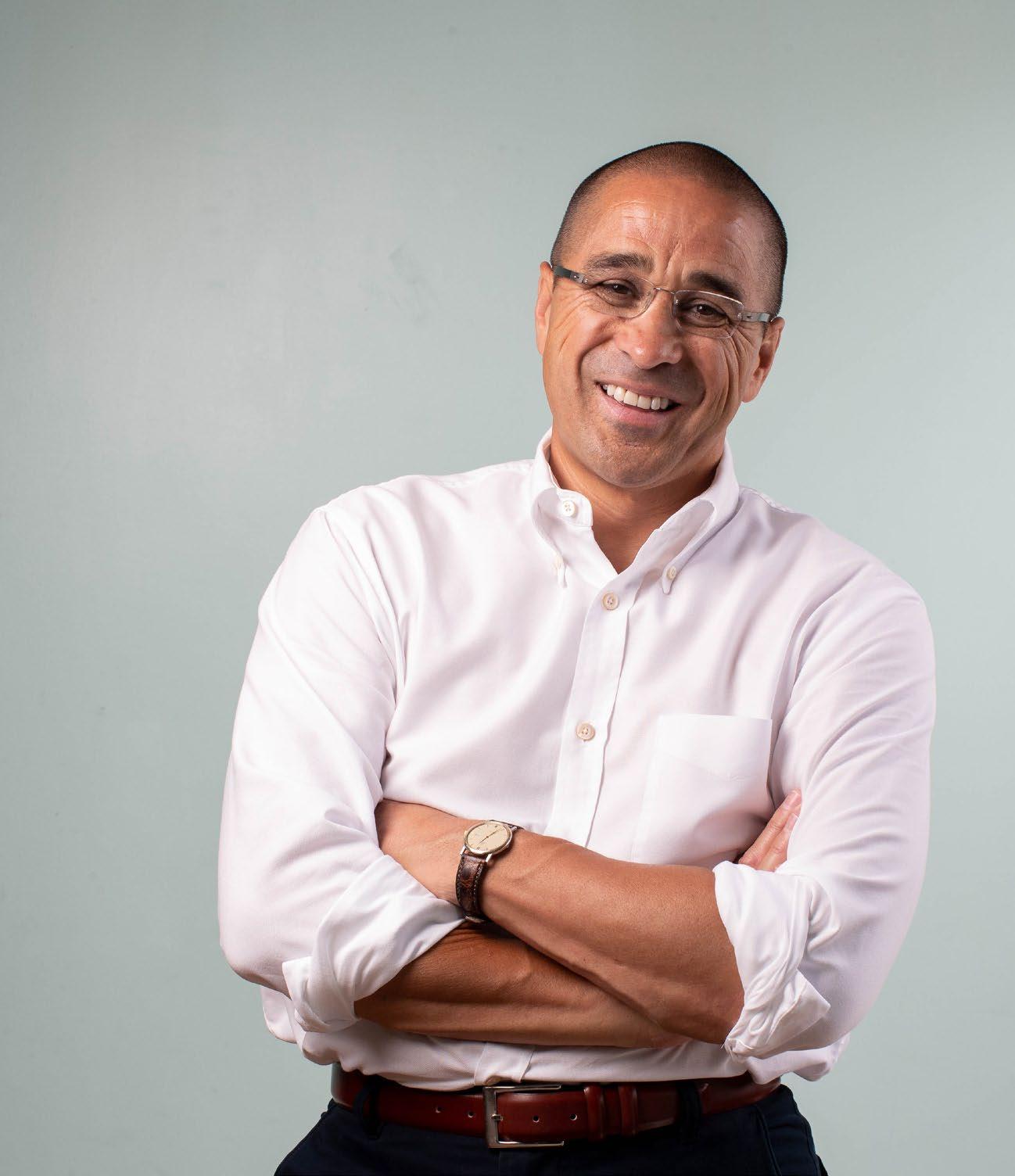
This year, IEF is using the planetary boundaries framework to understand our portfolio impact, as most of our ventures are focussed on environmental outcomes.
This concept presents a set of nine planetary boundaries within which humanity can continue to develop and thrive for generations to come, highlighting the interrelated processes within the complex biophysical Earth system.

We’re excited to share with you the fourth annual impact report of IEF, to celebrate the positive impact our portfolio is delivering.
Positive impact to get us back within planetary boundaries
Our portfolio has contributed to reduced carbon emissions, reduced packaging and toxic waste, improved education access, and is continuing to work towards reduced ocean acidification, improved land use, and improved nature and ocean biodiversity.
This positive impact contributes to the collective effort needed by all of us to get back within our planetary boundaries.
There is plenty more we can do together to maximise impact
Looking ahead, we will continue to back our businesses to achieve more impact and contribute to the growth of Aotearoa’s impact investing sector.
Thank you to our investors and partners for enabling IEF and our portfolio businesses to achieve greater impact.
IEF’s approach to impact investing
IEF creates positive social, environmental and economic changes through the activities of the portfolio businesses and our expertise in impact and investment management.
IEF supports our portfolio businesses to prove and improve their impact through impact model and measurement. Their achievements are summarised in this impact report.
Due to the challenging economic conditions and worsening situation on climate change and biodiversity, it’s even more important we prioritise our efforts to maximise the impact generated by our portfolio.
Through the investments IEF has made, and our networks and expertise, this has supported our businesses to innovate and amplify their impact.
Grounded Packaging’s Blueprint prototyping tool guides customers to make better packaging decisions with sustainability data.
Zincovery recovered their first zinc from their recently commissioned pilot plant, enabling them to rapidly scale their production.
LearnCoach’s AI tutoring product enabled students to improve studying practices.

AAct to avoid harm
The enterprise prevents or reduces significant effects on important negative outcomes for people and planet.

B CBenefit stakeholders
The enterprise not only acts to avoid harm, but also generates various effects on positive outcomes for people and planet.




Contribute to solutions
The enterprise not only acts to avoid harm, but also generates one or more significant effect(s) on positive outcomes for otherwise underserved people and planet.




Impact management: alignment with IMP
The IEF uses the globally leading impact investing framework, the Impact Management Project (IMP), as the basis of our impact management process. This framework covers both the investors’ and businesses’ intended impact. The diagram above defines these different categories and indicates where the IEF’s portfolio businesses fall within these categories. Note: Over time, as the portfolio’s impact management capacity increases as the businesses mature, we expect to see an increasing proportion of the portfolio in the ‘C’ column.
Complete due diligence to understand the impact model of the business. This is approved by our Impact Committee.
Embed impact priorities within investment documents, including a business purpose which recognises impact and development of diversity and inclusivity policy.
Develop impact measures and report quarterly. Insights are used to refine impact model and communicate impact.
Actively support the company to grow its impact over time through impact measurement and management.
Once invested, stress test and refine impact model to ensure it is robust.
To maximise the impact of our portfolio, we actively work with each venture to ensure their impact grows just as quickly as other parts of their business. The above diagram summarises how we do this.
Our goal is to support more organisations to regularly measure their impact, and use the information to support their decision making in growing their positive outcomes.
Based on our 2023 survey, our portfolio businesses are focussed on various stages of impact management:
In follow on investment rounds, support the company to find aligned investors who also prioritise impact.
Zincovery has developed innovative electrochemical technologies for the efficient and sustainable recycling of zinc.
Zincovery’s method uses 70% lower emissions than incumbent zinc recycling processes, creating the world’s first sustainable method to recycle zinc.


*Annual change = Total since investment till 2023 - total since investment till 2022. This applies across all ventures.
Note: Each business self-identified relevant planetary boundaries, in response to the question: “Which of the Planetary Boundaries aligns with your impact areas?”.
CertusBio provides a technological solution for optimising industrial processing through easy access to real-time data, so that food processors can now mitigate losses and wastewater quality issues at the source.
The impact is primarily focused on cleaner run-off from dairy processing, resulting in improved quality of waterways. CertusBio helps industrial food processors transition to a more sustainable model of production.
The secondary impact is from improved efficiencies through reduced transport, import and processing required of raw materials.
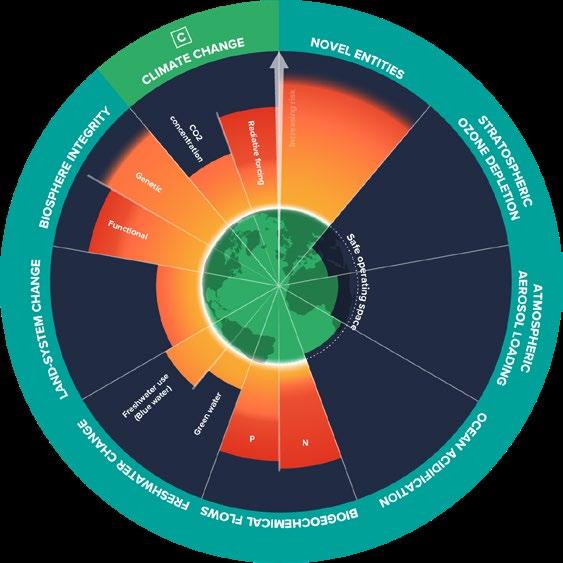

Tether focuses on solving building performance problems. 1 in 3 homes in New Zealand are unhealthy and, while regulatory changes are helping, there is a lack of performance and validation as to whether the desired outcomes are truly achieved.
Tether measures and monitors air quality, energy usage and carbon emissions. Their goal is to impact as many lives as possible by empowering smart decisions and highlighting risks that could save lives and protect valuable assets.

ZeroJet makes electric jet propulsion systems for small boats and tenders. Traditional boat engines produce almost 40x as many greenhouse gases as cars.
With every combustion engine replaced, ZeroJet reduces harmful emissions, which enhances water biodiversity and reduces negative effects on human health.
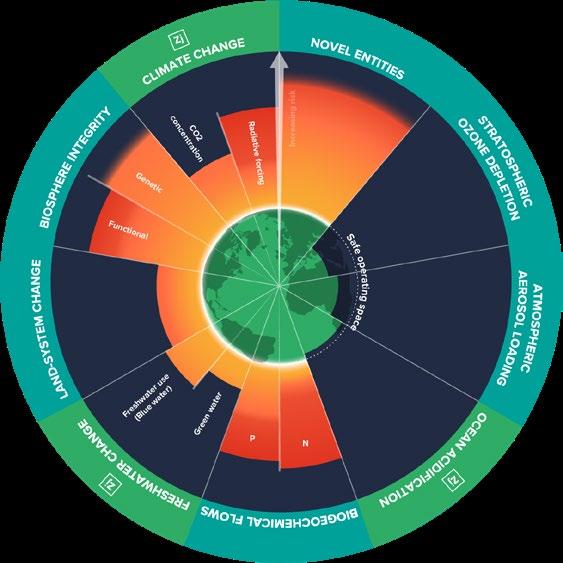


Grounded Packaging source and distribute globally leading sustainable packaging solutions, primarily focused on food and e-commerce sectors.
Their products replace single use plastics, and in doing so, reduce the amount of waste that enters our landfills and oceans.
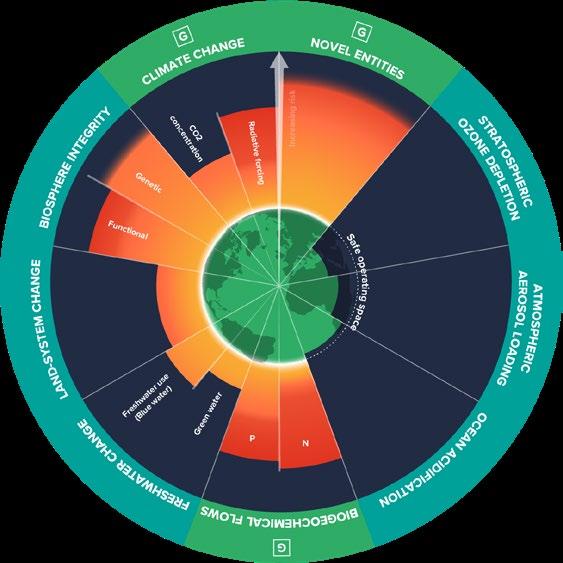
Waikaitu harvests invasive seaweed to produce a range of certified organic plant nutrition and crop protection products.
The intended outcomes are to improve plant and soil health through reduced toxins and synthetic fertilisers. Over time, the positive change would see reduced marine stressor and enhanced water quality.



Cropsy’s mission is to maximise efficiencies for horticulturalists in a scalable way.
This reduces the harmful use of pesticides and insecticides, increases land use efficiency, and reduces overall environmental harm.

CarbonCrop has developed artificial intelligence-based technology that enables efficient mapping of forests to quantify carbon sequestration.
That carbon can then be sold as carbon credits, encouraging more native forests to be planted.


LearnCoach’s purpose is to reduce inequality and improve education outcomes by providing easy-access education at low cost.
Students can study at their own pace, completing tutorials and practice questions for their secondary and tertiary subjects, and sit Government approved exams online.
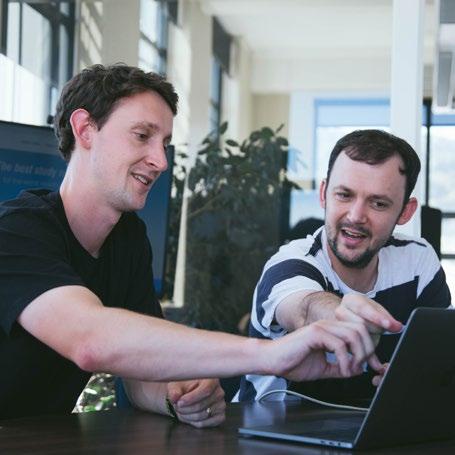


Recycling critical metals is an important strategy in Zincovery’s global effort to lower carbon emissions to reach net zero by 2050. However, the 4th most used metal in the world currently faces a recycling challenge. Zinc, which forms a coating on most of our outdoor infrastructure such as cars, roofs and lamp posts, is currently recycled using high temperatures and coal to extract the zinc from waste material, giving it a carbon footprint which is double that of mined zinc.
Zincovery tackles this challenge with an innovative solution. Their technology enables new zinc recycling processes that displace the need for coal with their proprietary technology, operating at much lower temperatures. Zincovery’s process significantly reduces emissions and production costs, while increasing efficiency.
Teaming up with forward thinking cleantech investors, steel mills and zinc buyers, Zincovery is forging new pathways for sustainable zinc. Their work leads to improved zinc recycling processes and more diversion of hazardous waste from landfill. In the longer term, Zincovery aims to drive change in the way industries think about waste, encouraging greater
circularity, more resilient and robust supply chains, for the health of people and the environment. IEF is proud to support their work and impact.
Find out how Zincovery aims to achieve its impact goals on the next page.


An impact narrative brings Zincovery’s impact model together into a clear and concise impact story:
Because:
Zinc is an essential resource and recycling zinc is critical. But the current zinc recycling process is carbon intensive, leading to a larger CO2e footprint than if zinc was mined.
We do these things:
Recycle zinc from furnace dust using a patent-pending chemical process, with less energy consumption and removing coal from the process, therefore reducing carbon emissions.
Which leads to:
Shifts in the zinc recycling industry practices, where more circular approaches are fostered and zinc recycling processes are improved – to be more efficient, low-carbon, and drive more robust supply chains.
And results in:
Decarbonised zinc recycling, growth in the circular economy, and healthier environment and people.

For more information on the Impact Enterprise Fund, our portfolio, and impact investing, please contact investor.relations@newground.co.nz.
